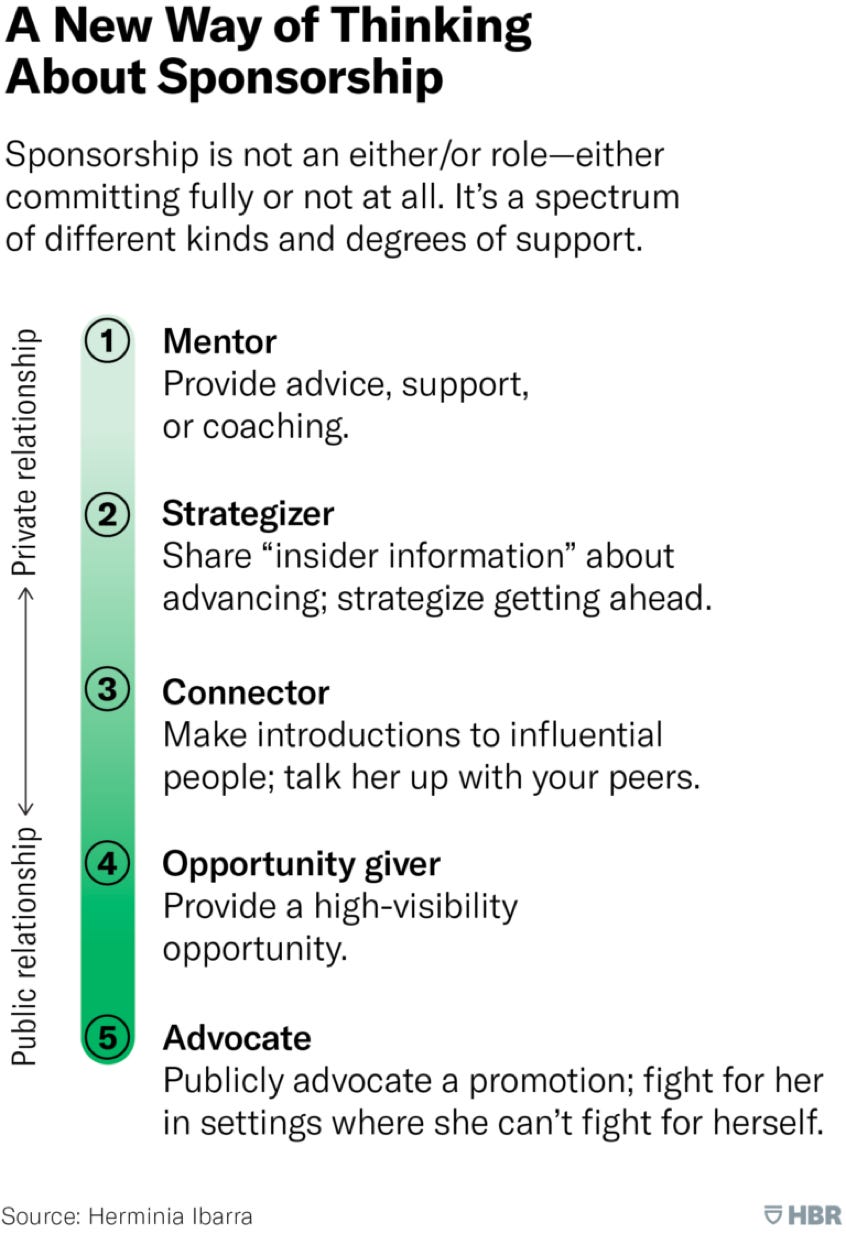If you enjoy this week’s issue please click on the 🧡 at the top of the email so that more leaders can find it. Thank you!
Leadership isn’t something that is best done alone. The best leaders align their support strategically around them, well before they need it.
I’ve written before about the criticality of defining your inner circle; those who you trust for advice and tough truths. But that will only take you so far.
Building mentorship into your armoury is a wise addition.
The concept of mentorship isn’t new. It started with the Ancient Greeks in Homer’s Odyssey. Yet for many, Mr Miyagi, the iconic karate master, who dedicated himself to mentoring Daniel La Russo into his transformation as The Karate Kid, might well have been your first introduction.
As well as teaching how to properly kick, block punches and fight his bullies, valuable life lessons were imparted by Mr Miyagi that demonstrated his desire to improve his apprentices lives in a much broader, deeper way.
And it was his integrity, wisdom about life and values which took Mr Miyagi beyond being a technical expert sharing his knowledge, to something far more impactful for Daniel, and memorable to his audience.
In business, mentors today are also typically people who will have will have gone through similar experiences and be wiling to share their knowledge, expertise and experience with you.
Not only the areas in which they were successful but also their failures and what didn’t work well.
And when done well, mentoring is hugely beneficial.
84% of CEO’s in mentoring programmes (in a study by HBR 2015) said mentors had helped them avoid costly mistakes and become proficient in their roles faster. A further 69% felt they were making better decisions as a result. And below the CEO tier, mentees have been found to have been promoted five times more often than those not receiving mentorship.
The challenge is that whilst mentors are, and are seen to be, effective; (76% of people think that mentorship is important), only 37% of people actually have one.
And mentoring only goes so far.
Mentoring, which now happens mostly through 1:1 conversation is helpful. But on its own it is far from sufficient.
Someone who will really advocate for you in practical terms, has much more power and impact.
A mentor is someone who has knowledge and will share it with you. A sponsor is someone who has power and who will use it for you. The first is about development, the second is about advancement.
Herminia Ibarra
The relationship which Herminia Ibarra describes falls along a continuum, bridging the gap between development and advancement.
Finding someone who will not only “pull you up, but also talk you up”.
And that means a relationship which features two critical elements:
An authentic open relationship - a two way conversation in which both parties share perspectives, and learn from each other
Public advocacy - a one way process by which someone uses their power to help you advance your career
Arguably the first, executed well, might lead on to the second.
But for the main, the unspoken expectation is that most mentoring relationships won’t extend this far.
And for many, especially women, her research finds that future female leaders are typically over mentored and under sponsored.
But regardless of gender, if you want to develop, and advance your career, that must change.
So when you’re looking for a new mentor, or re-engaging with an existing one, what can you do? Here are four things to consider.
Identify: In her research, Ibarra identifies a spectrum of support that can be provided that ranges from the advisory role of a mentor through to the role of a public supporter.
Think about your own mentors, past and present.
Where has the focus of the relationship been?
What would you like more of or less of now? Write it down.
What would that make possible for you?
Identify: While a mentor is someone who has knowledge and will share it with you, a sponsor is a person who has power and will use it for you. Both are valuable, for different purposes.
Going into a relationship, that means you need to be clear on what you are looking for; and open about what you need.
But finding one single mentor who fulfils all your needs, whilst not impossible, will be rare. Think about what you want to learn and what you want to do next. And what help you need to do that.
Factors such as how available they are and the degree/time to which they are able to commit to you should also be considered.
What experiences, values and qualities do you want your mentor to have?
What specifically is your request of them?
What practicalities are important?
Share: A mentor and mentee relationship shouldn’t be all one way. Whilst many of us mentor those around us as a way to give back, mentoring also provides an opportunity to learn from your mentee. So before you start approaching mentors think about what you bring and can offer in return.
What are your strengths?
What are your areas of expertise?
What’s in it for them?
Know another leader who is interested in mentoring? This post is free, so feel free to share it with them.
Lead: If you want to create a culture of progressive development conversations that deliver results, be a role model for them. Set the direction of your relationship with your own mentor and help them help you. And role model the behaviour of a mentor through your own mentoring.
These two axes describe the practical ways that mentors can help those they mentor.
Think about those who you personally mentor:
Allocate a percentage to each box for where you currently invest your time/energy, as a mentor.
What would you like the percentage to be?
What specific things would that mean you are doing more of?
Read: Herminia Ibarra has carried out a wealth of research into the relationship of mentoring in business today. Her full HBR piece is below and well worth a read.
If you’ve enjoyed this week’s issue please hit the 🤍 button at the top of the email so that more leaders can find it.
Meantime if you haven’t already, you can subscribe to receive the next issue straight to your inbox.











